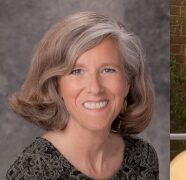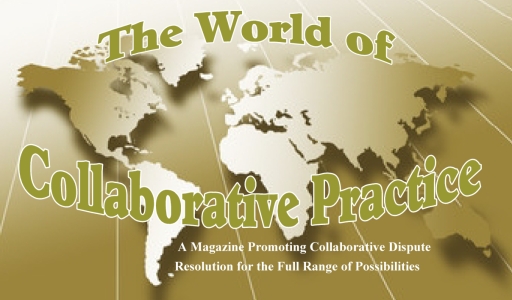
Tags
Related Posts
Share This
Divorce, Clergy, and the Collaborative Process
Members of the clergy are a significant segment of society often called upon by, and indirectly involved with divorcing parties and their families. The authors assembled an article to inform both the clergy and their members about the collaborative divorce process. Since none of us are members of the clergy, we conducted a small focus group survey to gain a better understanding of their perspective and concerns. The survey was conducted to obtain direct input on clerical concerns surrounding the divorce process, not for the purpose of statistical relevance. We interviewed six individuals from varying denominations and religious organizations, and asked each of them the same set of questions:
1. What are you concerned about when members of your congregation are heading toward divorce?
2. When that happens, what do you want to prevent?
3. What do you want to promote?
4. What do you see happening with the children?
5. What do you see happening to the co-parenting relationship?
6. What, if anything, don’t you like about attorneys or the legal process in this situation?
7. What, if anything, don’t you like about mental health professionals in this situation, if they are involved?
8. What, if anything, don’t you like about financial professionals in this situation?
9. What wounding and/or healing do you see coming out of the divorce process?
These questions were posed as talking points, and each person had an opportunity to elaborate on their answers. While most of the responses were as expected, there were a few surprises. After the interviews were completed, we categorized the responses in summary form. Each concern raised was then addressed in terms of the collaborative divorce process. The result is set out below.
The Clerical View of Divorce
While others may see the breakdown of a husband-wife relationship in isolation, clergy view divorce in much broader terms. In the eyes of the clergy, this relationship extends well beyond the husband and wife, and flows into all aspects of the couple’s life, including their myriad of relations within the community.
A positive web of relationships can provide an infrastructure that ensures accountability for divorcing parents in future co-parenting relationship, and aid them in avoiding rash behaviors that may harm their children. Perhaps most importantly, the relationships also allow divorcing persons to grow personally. According to Alex Evans, Pastor at Second Presbyterian Church in Richmond, this is the key. He has witnessed terrible marital situations turn for the better with proper counseling. Janet James, Pastor at The Gayton Kirk Presbyterian Church in Richmond, actually sees our individual abilities to reconcile relationship issues as nothing less than the basis for world peace – peace being the ability to reconcile on a larger scale. “It’s how we work through it, not what we are working on,” she said.
Janet James believes that church is a voluntary community, offering healing rituals and support. Divorcing persons often reject help from this community out of embarrassment of their domestic problems – either because the marriage could not be made to work or one spouse acted out. Mary-Frances Hughes-McIntyre notes that it is common for families to drop out of the church without mentioning the situation. This can carry significant negative consequences for the family as they are losing a community of support.
Divorce can pose difficulties for clergy as well. Janet James points out that the pastor often lacks a structure for talking to the couple together due to confidentiality issues; and Ellen Meissgeier worries about the pastor being able to appear neutral. Furthermore, as Ben Campbell, Pastoral Director at Richmond Hill, notes, divorce is still a largely x-rated subject within the church, and there is a fear that if we talk about divorce, then we encourage it.
Children are of great concern in these situations, and the clergy see a need for actively leading the children to healing. Alex Evans believes that finances are also a large issue, and the ability to settle these amicably reduces tension between spouses. There is also concern about whether all the members of the divorcing family will have their basic needs met – particularly, as Janet James stated, divorced single moms who are often left in dire financial circumstances. Mary-Frances Hughes-McIntyre feels that the astronomical fees for the divorce process further exacerbates this problem.
In conclusion, the common desires among the clergy were: to have divorcing people surrounded by a web of caring relationships that can lead them away from destructive behaviors, and towards healing and transformation; for children to be actively led to healing; opportunities at every step to reconcile; and for a process that was financially efficient and sensitive to the family involved.
The clergy we interviewed had mixed feelings about the professional resources available to divorcing couples. They felt that the adversarial nature of the divorce process has a high potential for negative outcomes. Thomasine Williams’ impression was that traditional divorce attorneys are more concerned with the financial issues of the divorce case, not with the emotional welfare of the children, while others expressed concern about the legal expense. The clergy, generally, have a very positive view of mental health counselors, but stated that they do not know of enough qualified counselors that they trust. The opinion about financial professionals as a helping resource was varied and unsure. Mary-Frances Hughes- McIntyre expressed concern over the financial incentives traditional financial professionals earn, and whether those potential conflicts of interest are adequately disclosed to clients. Thomasine Williams’ impression was that many of these professionals would take advantage of the divorcing person’s emotional state instead of putting the clients’ interests first.
The ideal situation would be to find legal, mental health and financial professionals who could help a divorcing family with the same kind of caring as that of the family’s clergy and congregation. These professionals would have to avoid the inflaming destructiveness of the traditional advocacy process in favor of an approach that promoted healing. They would have to focus strongly on the children’s needs. They would be more cost-efficient than the traditional adversarial divorce process. If these professionals could work together as a coordinated team, focused on the greater good of the entire family, they could be more effective in meeting all of the family’s needs. Such an approach could also act as the structure that helps focus and improve the clerical and congregational response to families in divorce crises. This leads us into a discussion of the collaborative divorce process.
The Collaborative Process and Clerical Concerns
As we listened and learned from the concerns of clergy with whom we spoke, it became clear that there was a compelling set of shared values between clergy and collaborative law professionals. We share the desire to offer families an opportunity for growth out of adversity and a place for healing in the compassionate arms of community. Such recognition of shared values is a radical departure from the experiences we have all witnessed through the traditional adversarial model. The collaborative process offers an alternative model bringing together these important values.
The collaborative model is an outgrowth of a holistic perspective on divorce. The ripples of loss are infinite and the nature of that loss goes far beyond a change of legal status, because it includes a redefinition of self and family. The nature of this redefinition requires a variety of tools and support as people reexamine their finances, lifestyles, values, spiritual beliefs, parenting approaches and the ways in which they relate to the larger community. In contrast to the traditional adversarial model that emphasizes the legal rights of the individual, the collaborative model invites families to focus on the needs of the family as a whole. It also includes a look at how emotional, physical, psychological, spiritual, financial, legal, and community resources can be used to best facilitate the needs each family identifies. There is an underlying philosophy that when given the appropriate tools, families are in a much better position to know what they need and how to best meet those needs than a court with whom they have no relationship.
The collaborative model provides a team of professionals (trained mental health experts, financial experts, and lawyers) to take an active role in the process as dictated by the needs of each family. The family has an opportunity to meet with each member of the team, and the team is then “benched,” to be used in the manner most healing and cost effective for the family. Families get to experience the process of getting divorce in a context that is more supportive, not only to them, but indirectly to the larger communities in which they find themselves, i.e. their church, synagogue, or mosque communities.
The collaborative law process is a process that recognizes the rebirth that can follow death and offers families choices to maximize the opportunities for that growth and rebirth. It is a process that fits well with the clergy’s role of helping families through this life transition, especially in a manner that is most consistent with the values of the church and the sustained growth of all involved. The clergy can offer practical support by helping congregants consider the collaborative law process as a viable option and making the appropriate referrals. This referral could be made by directing them to the website of the International Academy of Collaborative Professionals (www.collaborativepractice.com). This site will afford them the opportunity to learn more about the collaborative approach, as well as identify and provide bios for the professionals in their area. If clergy are familiar with professionals themselves, they can also make direct referrals to those mental health coaches, lawyers, and financial specialists. These professionals could then assemble a team with the clients that best suit the needs of the family.
We wish to express our sincere gratitude and appreciation to the dedicated and experienced members of the clergy who graciously gave of their time and attention in completing our survey and discussing the issues with us. Their responses were insightful, thoughtful, honest, and sincere. Our thanks to: Pastor Thomasine Williams, New Day Ministries, Ashland, Virginia; Pastor Ellen Meissgeier, Resurrection Lutheran Church, Maple Glen, Pennsylvania; Mary-Frances Hughe-McIntyre, Virginia Institute of Pastoral Care, Richmond, Virginia; Rev. David Bonnie, Saint Mark’s United Methodist church, Chesterfield, Virginia, Rev. Benjamin Campbell, Richmond Hill, Richmond, Virginia.
*************************
Donita M King is a collaborative practice attorney, arbitrator, Virginia Supreme Court certified mediator, authorized alternative dispute resolution (“adr”) trainer, certified mediator mentor, and authorized provider of continuing education courses for mediators and attorneys, including collaborative practice team training. She is a partner of CMG Collaborative Law Offices, PLC. In her private and adr practice she handles domestic relations matters, including cross border and parental abduction prevention mediation, and civil matters. She has been in practice over 33 years and has mediated over 2000 cases. Her cases have included divorce and child dependency mediations, and many multi-cultural and inter-faith issues and parties, as well as business, employment, financial, agricultural and various other subject matter mediations. She is licensed in PA, VA, & D.C. www.donitaking.com
Susan Buniva, MSW, LCSW is a collaborative practice divorce coach and child specialist. In addition, Susan has been in private practice for more than 20 years, providing individual and couples therapy as well as consultation, conflict resolution training for groups, teaching, and other forms of coaching. Particular interests include helping people through life transitions, managing diversity, gender issues, and behavioral finance. IACP Profile
Rob Fergusson, CDFA is a Certified Divorce Financial Analyst and the first collaborative financial neutral practicing in central Virginia. Rob’s professional practice, Rob Fergusson Divorce Financial Solutions, is focused solely on divorce work – a model that he believes reflects the future of the divorce financial field. www.fromdivorcetoprosperity.com










Share your thoughts here and in your network.